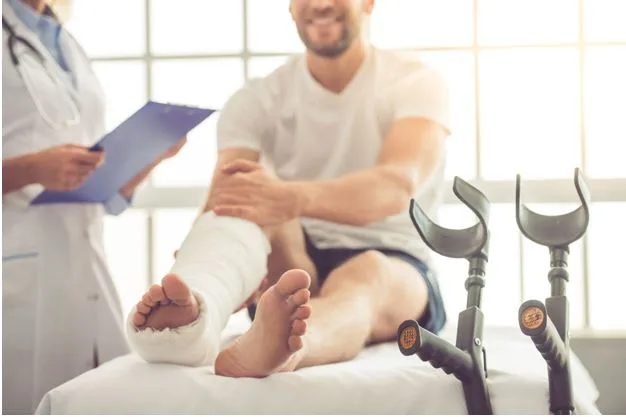The First 7 Days After an Accident in Norfolk: What Really Matters Most
Accidents have a way of changing everything in a moment. One minute you’re going about your day in Norfolk, and the next, you’re standing on the side of the road, trying to process what just happened. The first week that follows can feel like a blur, but those seven days matter more than most people realize.
They set the tone for recovery, insurance, and sometimes even your legal rights. The steps you take (and the ones you forget) can quietly shape what happens next.
Let’s walk through that first week together, step by step, the Norfolk way.
Day 1: Take Care of Yourself First
The very first thing is always health and safety. Even if you feel fine, get checked. Some injuries don’t show up until hours or days later. In Norfolk, you can head to Faith Regional Health Services or any nearby urgent care clinic for an evaluation.
Don’t downplay pain. The medical report from this visit can later prove that your injuries were caused by the accident, not something else. If you skip it, insurance companies might question whether you were really hurt.
According to the CDC’s transportation safety division, a quick medical evaluation after any accident helps prevent hidden injuries from becoming serious and supports long-term recovery. Acting early isn’t overreacting—it’s protecting yourself.
Day 2: Report the Accident Properly
Whether it’s a car crash on Benjamin Avenue or a slip and fall at a local business, make sure the incident is officially reported. For traffic accidents, contact the Norfolk Police Division or the Madison County Sheriff’s Office. They’ll create an official report that documents what happened, who was involved, and where it occurred.
That report might seem like just paperwork, but it’s one of the most important records you’ll need later.
Day 3: Gather and Save Everything
Accidents fade fast—both in memory and evidence. Take photos of the scene, the damage, and any visible injuries. Save receipts for medical expenses, prescriptions, or even towing costs.
Write down your recollection of what happened while it’s still fresh. Small details like weather, traffic lights, or witnesses can help later. If there were cameras nearby, ask businesses or homeowners to save the footage.
It’s not about overreacting—it’s about protecting yourself while everything is still clear.
Day 4: Notify Your Insurance Company
Insurance companies in Nebraska expect early reporting. Give them a basic summary of what happened, but don’t guess or fill in gaps. Just the facts. If you’re unsure about something, say so.
Keep notes of every phone call (who you spoke with, the date, and what was said). It’s easy to forget these conversations when the process drags on. A short, honest record can save you later if details get questioned.
Day 5: Follow Your Doctor’s Advice
Skipping appointments or stopping treatment early can hurt more than your health—it can hurt your claim. In Nebraska, insurers can use “gaps in care” to argue that you weren’t seriously injured.
Stick to your treatment plan and keep all your paperwork. Each visit builds proof of your recovery timeline. That proof becomes your voice when the paperwork starts to matter more than the pain you’ve lived through.
Day 6: Know the Law That Protects You
Here’s something many people in Norfolk don’t realize: Nebraska follows what’s called a modified comparative negligence rule. That means you can still recover damages even if you were partly at fault—just not if you were more than 50% responsible.
This small detail changes everything. It’s why understanding your rights early matters. A Norfolk, NE personal injury lawyer can help you understand how that law applies to your specific case. They know the local courts, the usual insurance tactics, and how to build your case around Nebraska’s unique rules.
It’s not about “lawyering up”—it’s about having someone who knows how the system really works here.
Day 7: Stay Organized and Ask for Help
By the end of the week, you’ll probably feel overwhelmed—and that’s completely normal. Between doctor visits, phone calls, and endless forms, it’s easy to lose track of what matters most.
Set up one folder (or even a shoebox) where you keep every receipt, report, and note related to the accident. That small act of organization can make a huge difference if things move toward a claim or settlement.
And if you’re unsure about what comes next, that’s the right time to ask questions. Many people in Norfolk reach out to a local attorney just to understand their options. A short conversation can prevent big mistakes down the road.
A Few Common Mistakes to Avoid
- Waiting too long to act. Nebraska’s statute of limitations for most personal injury claims is four years—but don’t wait that long. Evidence fades quickly.
- Admitting fault too soon. Even polite apologies can be twisted later. Stick to facts, not feelings.
- Posting online. It’s tempting to update friends, but photos or comments can be used out of context.
- Ignoring “small” injuries. Minor pain can turn into long-term damage—get it checked and documented early.
Closing Thought
Accidents are unpredictable, but how you handle the week after one doesn’t have to be. Taking simple steps—seeing a doctor, gathering records, and learning the local process—sets you up for a smoother recovery and fairer outcome.
Norfolk might be a small community, but the system that follows an accident can feel anything but simple. The more prepared you are, the less likely you’ll get lost in it.
So take it one day at a time. Protect your health, your records, and your peace of mind. And if questions start piling up, know that help is right here at home—just a call away from someone who understands how Nebraska law protects you.



